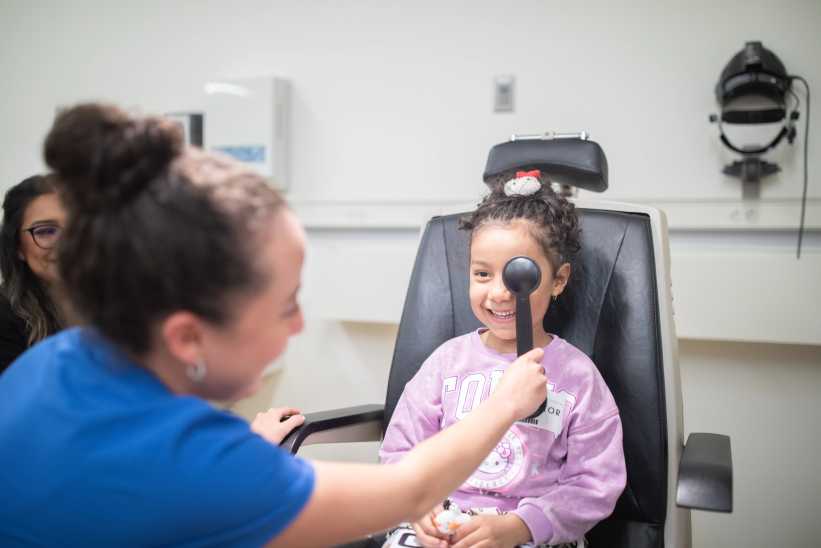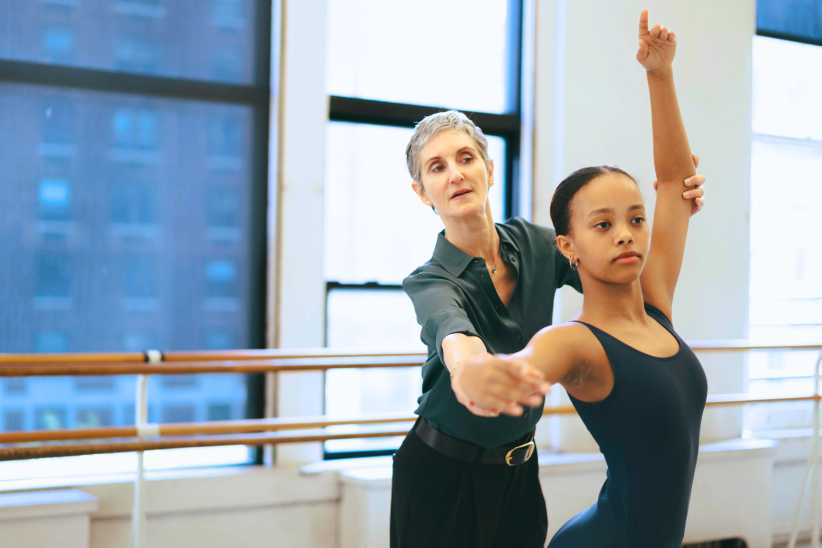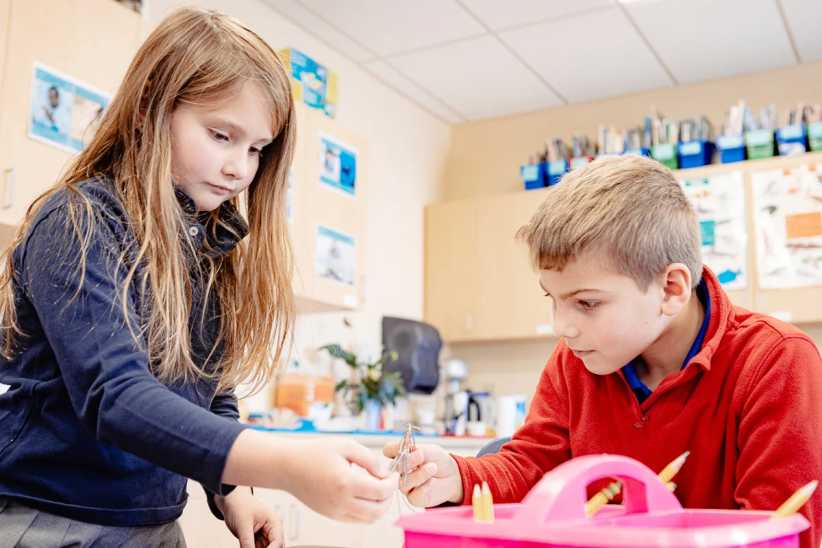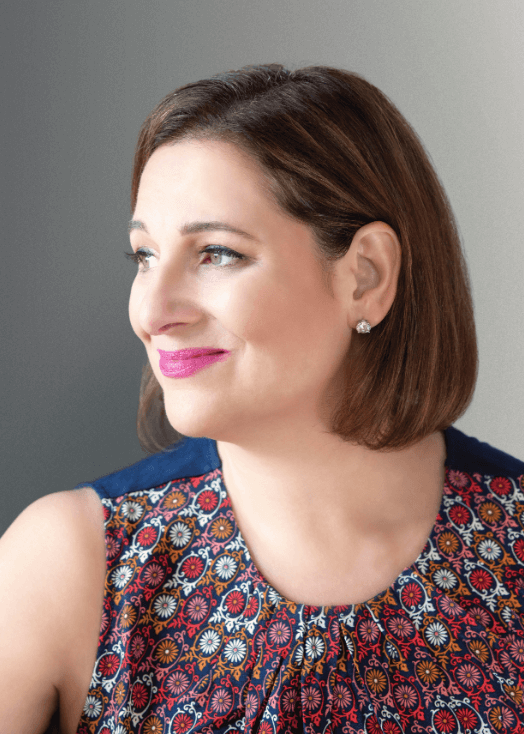
New York Family’s Parent’s Book Club’s September Pick is Mrs. Everything by Jennifer Weiner. Mrs. Everything tells the story of two sisters, Jo and Bethie, growing up in the 1950s. Jo is the tomboy and rebel, while Bethie is the feminine, good girl. But Jo and Bethie’s lives significantly change over the years as they experience traumas and tragedies amongst a changing America. Neither woman has the life that they expected. Mrs. Everything explores the question: How should a woman be in the world? We caught up with Jennifer Weiner to discuss her novel, her thoughts on womanhood and motherhood, and her career as an author!
Jennifer Weiner is the #1 New York Times bestselling author of sixteen books, including Good in Bed, In Her Shoes, and her memoir, Hungry Heart: Adventures in Life, Love, and Writing. A graduate of Princeton University and contributor to the New York Times Opinion section, Jennifer lives with her family in Philadelphia. Visit her online at JenniferWeiner.com.
Facebook: www.facebook.com/jenniferweiner @jenniferweiner
Instagram: https://www.instagram.com/jenniferweinerwrites/ @jenniferweinerwrites
Twitter: https://twitter.com/jenniferweiner @jenniferweiner
Her website: www.jenniferweiner.com
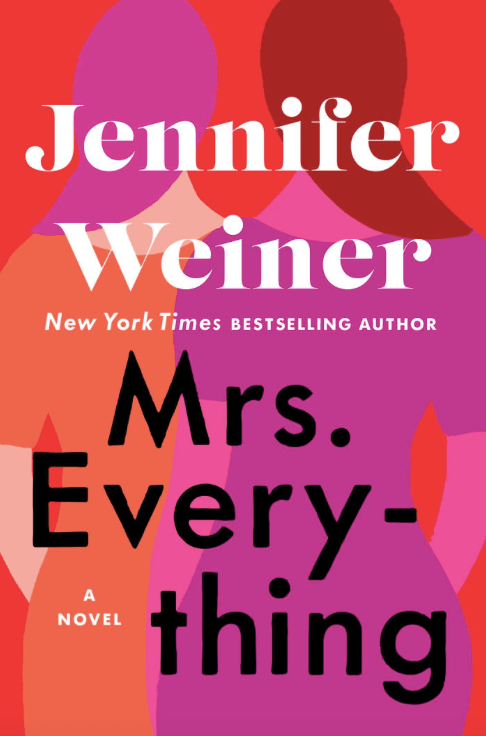
For our working mothers out there who are struggling to find a balance between career and motherhood, what advice do you have about maintaining such a balance? How do you pursue your successful career while simultaneously carving out time for your family?
I have a love-hate relationship with this question. The part I love is that it gives me an opportunity to be honest in a way I wish more famous/prominent/successful women were, and to shout from the rooftops that the only way my life works and is sustainable is because of paid help. When my daughters were little I had a sitter for six hours of every day. When they started preschool, I continued to have paid caregivers. I have an assistant who handles a lot of the tasks that go along with running a house. I have a housekeeper five days a week, who vacuums and sweeps and mops and does the laundry. I want people to know this about me, and to feel confident in guessing it about other prominent women they see. Chances are, if you’re looking at a picture with a bunch of well-groomed, well-behaved children and a well-dressed, well-rested, well-put-together mother, there is a paid caregiver or a nanny or a team of nannies who have been edited out of the shot. That’s just the reality of every working parent I know – for every successful mother, or father, there’s probably a woman somewhere in the background who is doing it for money, and sometimes at the expense of being with her own kids.
I try to be very open about it. Whenever I’m asked about work/life balance, I always say that I have, or used to have, sitters and a housekeeper. But I understand women who don’t want to talk about it, who want people to believe that they’re pulling it all off on their own, that they’re writing bestselling novels by typing from four to seven in the morning, then waking up their children, feeding them a home-cooked, healthy, organic breakfast, driving the carpool, whatever. There is still so much judgment around being a mother, and the idea that you’re paying someone else to help means you’ve failed, or you’re not as good of a mother or a woman as you should be. But if we don’t talk about it, that silence perpetuates the cycle of shame. It makes the women who do have sitters and housekeepers feel less capable than the ones who (allegedly) don’t. And it keeps the women who do this work from being visible, and from being treated and paid fairly. Their work is incredibly valuable, and we as a society should treat it that way, and pay them accordingly.
So that’s the ‘love’ part of the question. The reason I hate is that, in the year of 2019, we are still not asking men how they balance work and family. Every actress with a new baby is asked how she does it, and if it’s hard, and how torn apart she was that first time she had to leave her baby behind. We don’t ask men any of that. We don’t ask because we know the answer – there’s a woman taking care of the house and the kids, and that’s what makes his life possible. And yet a woman is still punished for saying that it’s her truth. All of us need to think very hard about why that is, and how we can be responsible for changing it.
How did your time at Princeton University influence your career as an author?
I was lucky enough to study with some extremely famous and hugely talented authors at Princeton, including Joyce Carol Oates and Toni Morrison. I wish I could tell you everything I learned in Toni Morrison’s class, and how much it helped me, but the truth is that I am pretty sure I spent ninety percent of my time in her presence marveling at the idea that I was breathing the same air as Toni Morrison!
Toni Morrison taught a “longer fiction” class, and every student had to submit at least 100 pages of work to complete the course. What that class taught me was I could write something novel-length, even if it was not ready for publication (and Lord, was it not ready for publication!) What Joyce Carol Oates’ class taught me is that writing is rewriting, and that you can always make something better. That class was where I learned to love revision. But the class with the most impact was John McPhee’s class on nonfiction writing. I learned so much about structure, about word choice, about the importance of the right word and the right detail, and, again, the importance of revision. John McPhee was also the professor who encouraged me to go into journalism, to get a job at a small local paper in a part of the country I’d never seen and write every day. I believe that the foundation I got as a journalist was what made my life as a novelist possible.
Virginia Woolf once said in A Room of One’s Own that the influence of the “common room” has made the voice of female authors distinctly different from male authors. Do you believe that women have a different voice and perspective in literature than men? What is the value of this perspective?
Any writer brings his or her lived experience to the page…and women’s lives are different than the lives of men. I do believe that women experience the world differently than men do, and that we bring that experience into our characters and our stories and our books.
The value of that perspective depends on the reader. If men read women’s stories, they see the way the world looks like when you’re living it in a female body. To give just one example, in my first book I talk about a woman walking home from a party alone at night, and how she puts her keys between her fingers to form a kind of makeshift weapon in case someone grabs her, and how, when a man comes up behind her, the first thing she feels is fear. I heard from men who read the book (most of them having picked it up off a girlfriend or wife’s nightstand) that they had no idea that being a woman alone in a city after dark means being afraid. So that reader is learning something new. Meanwhile, a female reader is having her own experience affirmed. She’s reading that passage and thinking I’m not the only one, and someone has seen me. Which is important, because so much of literature, especially the literature that forms the canon, is written by men, and it doesn’t see us.
I took a class once all about the genre of Chick Lit. We explored the modern genre that many associate “female” books with and the various characteristics of Chick Lit, such as books that focus on female characters and book covers that appeal to women. What is your response to the emergence of this Chick Lit genre- should we be categorizing novels in this way?
I thought chick lit was the most diminishing, demeaning, aggravating term in the world when I first heard it applied to my books. Now, my joke is that I’m almost fifty and I’d be extremely grateful if anyone called me a chick!
But that’s a joke. The truth is that, chick lit as a category has nothing wrong with it. Stories about young women making their way in big cities, their troubles with work, with families, with boyfriends, with their own mental health – those books are great, or they can be great, and they allow a category of reader to feel seen. Chick lit as a label was problematic. Mostly because we didn’t have jokey, shorthand slang for books about young men in big cities. Those just got to be books, no qualifier necessary, where books by women got labeled, and ‘othered.’ As happy as I was that all of those books by women were getting published, and getting read, I’ll be happy when those books just get to be books, no labels necessary.
You have two daughters, a sister, and you dedicated Mrs. Everything to your mother. How did these relationships with women in your life influence your writing of Mrs. Everything?
My mother’s story was the one that informed the plot and the specifics of this novel the most. My sister’s life had a lot to do with how I thought about Kim and Melissa and Lila, and the roles they played as women who came of age in the 1990s and the 200s. Thinking about my daughters was made me want to write it. My older daughter is 16 now, and she’ll be leaving the house soon, starting her own life as an independent woman. Like any mother, I’ve thought a lot about the world she will inherit, and live in, and what’s changed and what hasn’t. Those questions became even more urgent after the 2016 election, where we thought we’d all be waking up in one America and ended up in a very different version.
After researching this book, I understand that enacting true change is a long, arduous process. I understand that progress often feels like one step forward two steps back. But I feel like we’re at an important place now; a place where we all have to remember, or remind the generaton that wasn’t there, what it was like in the America of “make America great again,” where reproductive rights were limited, along with womens’ choices in all facets of their lives. That’s not an America to which I want to return. It’s not an America I want my daughters to live in.
Mrs. Everything explores themes of sisterhood, sexuality, reproductive rights, identity, race, and womanhood. In many ways, Mrs. Everything resonates with women across all generations, as well as speaks to the social, political, and gender-based issues in society today. What do you believe is the power of fiction in expressing your ideas, as compared to an essay or other form of writing?
There’s a quote I always go back to, by the poet and activist Muriel Ruykeyser, who asks, “What would happen if one woman told the truth about her life? The world would crack open.”
I believe that fiction can be a vehicle for truth; a way of telling women’s stories honestly, a way of showing, more than a first-person essay of one woman’s life story ever could, how little things have changed. A novel is the only place with a broad enough canvas to show history over not just one life, but many. It’s also a place where you can slip some education in with the entertainment, where you can provoke your readers and get them to reflect on their own lives, not just keep them happy on the beach.
What were some of the challenges that you faced in writing Mrs. Everything?
The span of the novel was a challenge. So was the timeline – realizing that if I want to mention the moon landing, this character had to graduate from college in this year, and that changing one piece meant that now my song references weren’t current, or this television show that I want to mention in fifty pages wouldn’t be on the air yet. It’s a lot of moving pieces!
A running thread in Mrs. Everything is about recognizing the differences between what can and can’t be controlled in life. Mrs. Everything raises the questions of: To what extent do we have control over our lives? What other factors, such as social and cultural expectations, take away from our control? And how do we gain more control over where our lives go with the choices that we make? I’m interested in what drew you to these questions. In your opinion, do we have control over our lives today, or are there other elements at play, whether it be fate or the restrictive nature of society, that dominate?
I believe that women have more control over our own lives than we’ve ever had before. One of the things I wanted to illustrate in this book was how much reproductive choice matters, and how if a woman can’t choose when, or if, she wants to have children, she basically has no control over her life at all. That right, as we all know, is under attack right now, from people who call themselves pro-life, and while I still see women’s lives as out of their control for a variety of reasons – from the way we’re encouraged to focus so much of our time and money and energy on our looks, to the way we’re judged as mothers if we go back to work – I see reproductive choice as the key to all of the freedom, and to every option and choice that women in America have. If we lose that, we lose everything.












